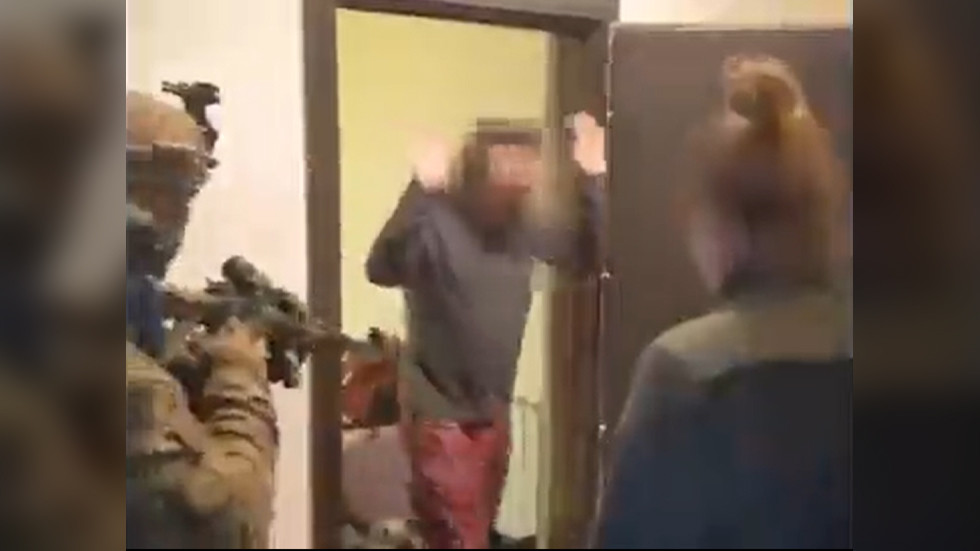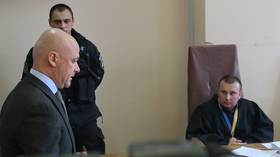
Security services have accused Gonzalo Lira of “insulting” Ukraine’s government and military

© Twitter / @Angelo4justice3
The Security Service of Ukraine (SBU) on Friday confirmed the arrest of Gonzalo Lira, a Chilean national living in Kharkov, suspecting him of pro-Russian sympathies. Lira had been previously detained in April 2022, but released after a week and ordered not to leave the city.
According to a SBU statement quoted by Ukrainian media, Lira “publicly justified the armed aggression” of Russia, denied or glorified alleged Russian war crimes, and “engaged in discrediting the top military and political leadership and the Defense Forces of our state.”
The SBU filmed Lira’s arrest by heavily armed agents, blurring out the faces of everyone involved.
He is suspected of “producing and distributing materials justifying the armed aggression of the Russian Federation against Ukraine, committed repeatedly.” A court ordered him jailed pending the outcome of the investigation.
The SBU has reportedly seized Lira’s computer and multiple cell phones as evidence.

Read more
Lira, 55, is a writer and filmmaker who used to work in the US. Several years ago, he moved to Kharkov, where he got married and began blogging as ‘Coach Red Pill’.
This is the second time he has been detained by the SBU. He was first arrested in April 2022, but was released after a week. No charges were pressed at the time, and Lira would not discuss the details of what happened, saying only that he was not allowed to leave Kharkov.
He blamed the US outlet Daily Beast for directing Kiev’s attention to his work, accusing the outlet of trying to get him killed. The tabloid had reported on Lira’s activities in March 2022, calling him “sleazy” and a “pro-Putin shill,” and noting its reporters had reached out to Ukrainian authorities.
While Lira kept a low profile for several weeks after his release, he eventually returned to social media and continued voicing criticism of Kiev’s policies. Since then, Ukraine has enacted laws criminalizing dissent and allowing President Vladimir Zelensky to ban opposition political parties, nationalize the media and even persecute the Ukrainian Orthodox Church for being in canonical communion with Moscow.




